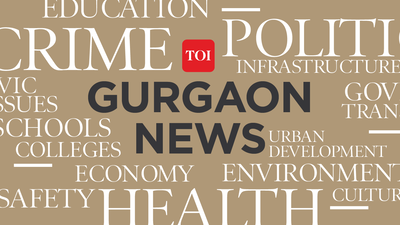ARTICLE AD BOX

Gurgaon: Indian Medical Association (IMA)’s Haryana chapter on Friday sought immediate clarification about the cashless treatment pertaining to road accident victims. In fact, private hospitals, which have been roped in, are flagging a lack of clarity on operational guidelines, payment mechanisms and treatment rates.The development comes against the backdrop of a statewide rollout of Haryana’s cashless treatment scheme for road accident victims, which has been facing serious roadblocks.The scheme, aimed at ensuring free emergency care for accident victims during the crucial first seven days or up to Rs 1.5 lakh, was earlier restricted to Ayushman Bharat-empanelled hospitals. However, with limited participation due to extremely low reimbursement rates and infrastructure constraints, directorate general of health services (DGHS), Haryana, issued fresh instructions on June 4 to onboard non-Ayushman hospitals as well.In a letter addressed to DGHS, IMA has sought guidelines on how the new hospitals will be empanelled, which portal will be used to register and track patients and how payments will be made.IMA has requested DGHS to immediately issue a detailed guideline outlining onboarding steps, financial coverage, payment timelines and rate revisions to ensure that hospitals can realistically provide care without suffering financial losses.
IMA Haryana president Dr Mahaveer P Jain told TOI, “There is no clarity on who will pay for these services, how the bills will be submitted or processed, or what rates will be given for ICUs, surgeries or diagnostic tests.” “Without this, the scheme will collapse before it starts,” Jain said.IMA has also flagged the Ayushman Bharat rates — under which hospitals are expected to provide comprehensive trauma care at around Rs 1,000 per day, including medicines, ICU care and CT/MRI scans — as completely unviable.
“This was the main reason the scheme failed to take off earlier in Haryana,” former IMA president Dr Ajay Mahajan said. “The state is now asking more hospitals to join, but without fixing the fundamental flaws,” Mahajan said.The recent directive by DGHS to involve other hospitals is seen as an attempt to revive the programme. But without a standard operating procedure (SOP), notification system for hospitals, or clear reimbursement policy, medical professionals say it’s set up for another failure.
“Unless the state addresses these gaps swiftly, it’s just another policy on paper. Meanwhile, lives that could have been saved continue to be lost,” Dr IMA Haryana secretary Dhirendar K Soni said.A senior official from DGHS (Haryana) said, “The objective is to ensure no road accident victim is denied emergency care due to lack of financial resources. We are actively working on streamlining the onboarding process for non-Ayushman hospitals and will soon issue clear SOPs, including case registration protocols and payment mechanisms.”Additional chief secretary, health and family welfare, Sudhir Rajpal on June 4 chaired a review meeting on the implementation of the scheme aimed at providing free and cashless emergency medical treatment to road accident victims across the state.During the meeting, it was informed that all hospitals empanelled under the Ayushman Bharat Pradhan Mantri Jan Arogya Yojana (AB-PMJAY) are by default automatically included under the road accident treatment scheme.
However, it was highlighted that a greater number of hospitals need to be brought on board to ensure that accident victims receive timely and quality care at the nearest available health facility.The scheme showed promising results during a pilot project conducted at IIT Chennai, where full govt funding for the first week of post-accident treatment helped significantly reduce fatalities. Inspired by this, the Centre rolled it out in five states — including Haryana — under the condition that only Ayushman-empanelled hospitals would be included.
However, this restriction, combined with low package rates, limited the scheme's effectiveness.As traffic accident numbers continue to rise, healthcare professionals warn that any further delay in resolving these issues could prove fatal — not just for victims on the road, but for the credibility of the state’s emergency healthcare initiatives.
Get the latest lifestyle updates on Times of India, along with Eid wishes, messages, and quotes !



.png)
.png)
.png)
















 14 hours ago
4
14 hours ago
4









 English (US) ·
English (US) ·